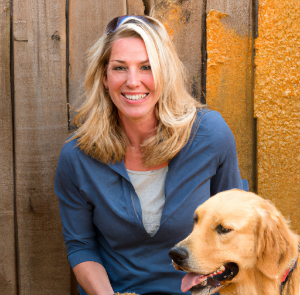
The more extended experience, the better. It's advisable to inquire if they have received guidance from a seasoned breeder if they are relatively new to the breeding process. Breeding requires a comprehensive understanding, and it's not recommended for those who lack adequate experience.
It's common for committed breeders to focus their efforts on one or two breeds, as properly caring for them requires a significant amount of time and dedication. It's also beneficial for a working-dog breeder to participate in competitions specific to the breed they are breeding, as this is a key aspect of the breeding process.
It is always a positive sign if a breeder belongs to a breed club. Such clubs provide breeders with support and resources that can help improve their breeding practices. Additionally, these clubs are a way for breeders to connect with others who share their passion for the breed. Being a member of a breed club also offers opportunities to see how different dogs and lines perform in competitions, as well as stay informed about potential health concerns in the breed. On the other hand, a lack of club membership may indicate that the breeder prioritizes profit over quality breeding and community involvement.
The primary motivation behind breeding dogs should be the desire to improve the breed. The breeder should be passionate about advancing the breed's characteristics, health, and well-being.
The goal of breeding a litter of dogs should be specific and aim at enhancing the breed in a particular manner. It is crucial for a breeder to be able to articulate the traits they hope to improve or maintain. The breeder should have a thorough understanding of their dogs, including the history of their lines, strengths, and weaknesses, and be able to discuss these in detail. The focus should be on the adult dogs, rather than just the puppies.
As too many litters at once or ones that result from "arrangements" can be a red flag. An arrangement where a breeder gives a dog to someone with the expectation of breeding it multiple times can result in breeding without proper consideration for the dog's health or worthiness for breeding. This type of arrangement may also compromise the socialization of the puppies, as the breeder may claim they are home-raised without actually providing proper care. It is also important to make sure the parents of the litter have undergone proper health tests, such as those provided by the Orthopedic Foundation for Animals (OFA) and Canine Eye Registration Foundation (CERF), to ensure the genetic health of the litter.
A dedicated breeder who is focused on the well-being of the dogs should not have too many litters to manage at once. This ensures that the breeder has sufficient resources and time to provide proper care and attention to each litter.
Different breeds may require different tests, so it's wise to consult with a veterinarian or breed club to determine what is necessary for the specific breed. For example, some breeds may be prone to hip dysplasia or elbow issues, and in these cases, it's advisable for both parents to have a passing rating from the Orthopedic Foundation for Animals. Similarly, breeds prone to eye problems should be examined by a canine ophthalmologist and registered with the Canine Eye Registration Foundation, while breeds prone to Von Willebrand's disease should be tested to ensure they are clear of the condition. Understanding these tests and health issues is key to making informed breeding decisions.
Every dog that is bred should have desirable traits such as mental soundness, temperament, and physical soundness. Intelligence and good temperament are important for search and rescue dogs. Physical soundness means the dog will likely have a lower risk of health problems caused by inherited conditions. This can be determined through temperament tests, working competitions, and health screenings such as hip dysplasia tests. Note that conformation show wins only indicate that the dog meets breed standards, but do not necessarily indicate the dog's suitability for breeding. Working titles, such as tracking or utility dog, are considered more valuable than conformation titles. For SAR dogs, it is ideal to breed dogs with real working titles rather than sport-based titles.
A responsible breeder will carefully consider the mental, temperament, and physical qualities of both the male and female dog before mating them. Simply wanting to breed a dog because it's "good" or to provide "quality pets" is not a valid reason. The selection of a mate should be based on the dog's abilities and qualities, rather than convenience or personal preference.
A responsible breeder should be selective when choosing a mate for their stud dog and not simply breed them with any available female. This lack of consideration can indicate disregard for the quality of offspring produced.
A minimum requirement would be the option to have a vet examine the puppy and the ability to return it if it's not in good health. Make sure to review any agreements thoroughly with a legal professional. Some breeders may offer a lifetime guarantee, but with the stipulation that the dog must be returned to them, which can be an unrealistic expectation. Additionally, it's worth considering whether you'd want a dog from the same breeder if the animal develops serious health issues later on. (Please note that returning a dog due to personal circumstances is different from a breeder guarantee covering health or genetic defects).
It is advisable to ask the breeder for a contract that outlines the terms of the sale, and to have it reviewed by a lawyer to avoid any potential issues. The contract should include information about guarantees and other important details. Avoid co-ownership agreements, as these are often used to retain breeding and showing rights by the breeder.
The appropriate age for puppies to leave their breeders varies among different breeds. However, it is recommended that puppies are kept with their breeders until at least 12 weeks old, in order to ensure proper socialization and early training. Taking a puppy away from its litter before 8 weeks old can increase the risk of behavioral problems. A responsible breeder will keep the puppies for an additional 4 weeks after 8 weeks to help them learn important social rules and bite inhibition from their mother and littermates.
It is important to ask the breeder about the specific methods they use to socialize the puppies before they are placed in their new homes. Avoid vague statements such as "We have a lot of kids around to handle the puppies" or "We have a lot of people coming in and out". The ideal breeder should have a structured program for socialization and early training, such as the Bio-Sensor program, especially for puppies destined for work such as SAR.
It is advisable to be cautious if the breeder is unwilling to disclose this information. This question is important in order to follow up with the next question.
By reaching out to the previous owners of the puppies from the last litter, you can gain insights into the characteristics and behavior of the dogs. It's important to listen for any common tendencies, such as barking or eating certain objects, that multiple owners may mention. This can give you an idea of the inherited tendencies in the line of dogs. You can also ask the owners if they would purchase another dog from the same breeder.
Q: What are SAR dogs?
A: SAR dogs, or search and rescue dogs, are highly trained dogs that assist in disaster response efforts. They use their incredible sense of smell to locate missing persons and bring them to safety.
Q: What should be taken into account when looking for a breeder for a new SAR dog?
A: A successful match depends on finding the right breeder for the job. Interviews should be conducted to make sure the pup is up to the standards needed for SAR work - seeking someone who specializes in working dogs as opposed to show breeds is recommended.
Q: How do we ensure retired SAR dogs stay comfortable and happy?
A: Retired SAR dogs need regular vet visits, a safe environment, nutritious meals, and activities to keep them occupied. They deserve lots of love and respect - just like they did while they were working!
Q: What is the history of search and rescue dogs?
A: The use of search and rescue dogs can be traced back to the use of Red Cross dogs during World War I. They were initially trained to bark at the location of wounded soldiers, but this method was changed to picking up a designated item. Today, search and rescue dogs have been used in various disasters around the world, such as earthquakes, and have proven to be a valuable asset in saving lives and recovering bodies.
Q: How do SAR dogs locate missing persons?
A: SAR dogs use their keen sense of smell to quickly locate missing persons. They work closely with their human handlers to search areas that would be too dangerous or time-consuming for human teams to search.
Q: What breeds are best suited for search and rescue work?
A: Many breeds can be trained for search and rescue, but some of the most commonly used breeds include German Shepherds, Labrador Retrievers, Golden Retrievers, and Belgian Malinois. The breed chosen will depend on the specific requirements of the search and rescue organization, as well as the individual dog's temperament and ability.
